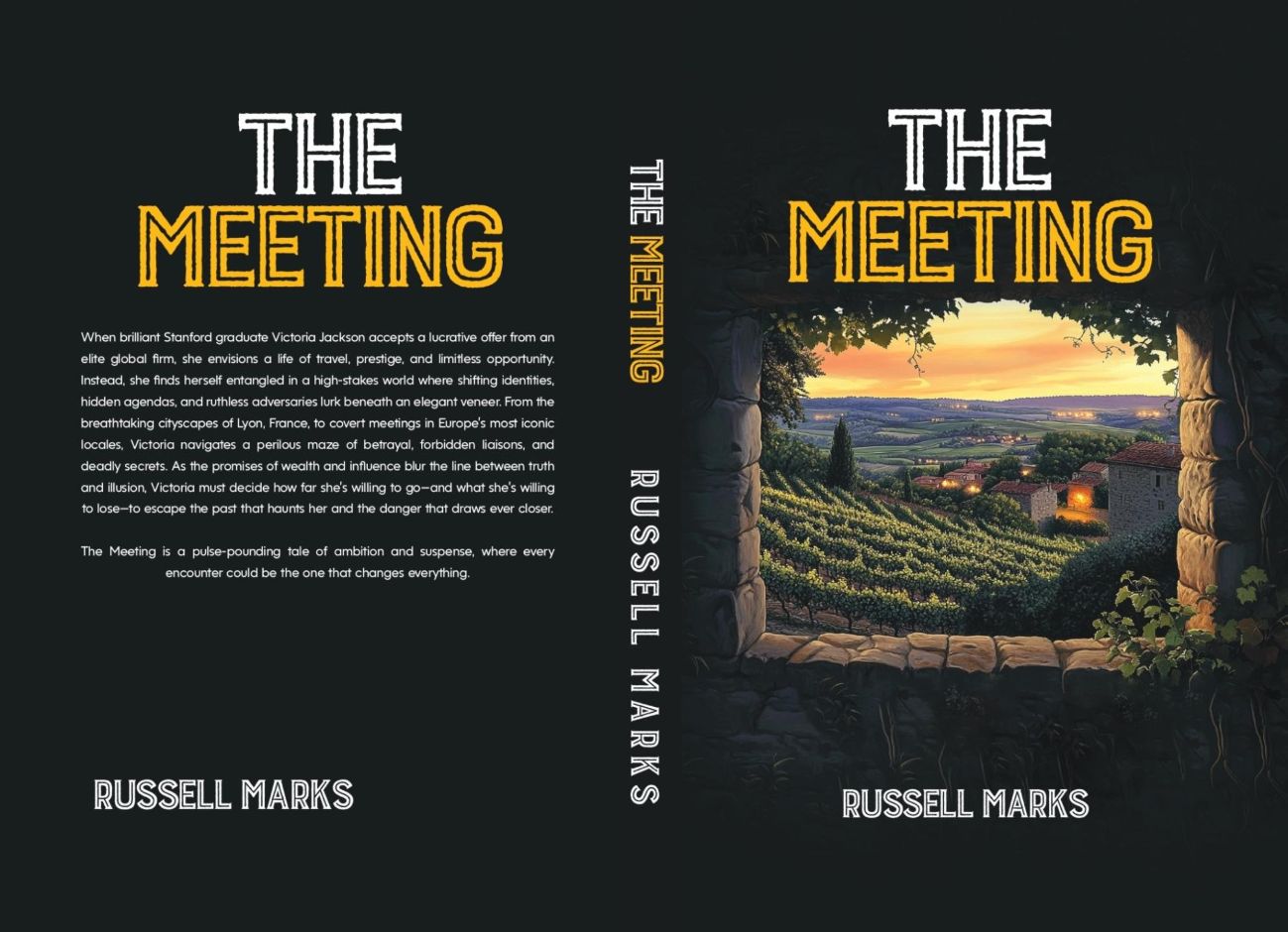By: Elowen Gray
In a world where the corporate elite and shadowy global networks often intersect, The Meeting by Russell Marks emerges as a thought-provoking tale that explores international intrigue, identity, and betrayal. Speaking with the author in a thoughtful interview, it became clear that the themes examined in his latest novel are informed not only by imagination but also by years of observation and careful reflection on power, trust, and the cost of ambition.
Marks, well-regarded for his engaging storytelling and well-rounded character development, invites readers into the high-stakes world of Victoria Jackson—a Stanford graduate turned international operative—whose journey begins with a job offer that seems too good to be true. During our conversation, Marks emphasized that he aimed to explore the vulnerability of intelligence wrapped in naivety, and what unfolds when one’s idealism confronts the realities of global corruption.
“I wanted to illustrate how quickly a dream job can take an unexpected turn,” Marks explained. “Victoria is smart, driven, and unsuspecting—qualities that make her particularly vulnerable.”
The Meeting opens in the picturesque hills of southern France, where Victoria—under her alias Samantha Langley—encounters Thomas Avery, a fellow American whose seemingly innocent presence gradually reveals a darker side. Their brief encounter, set against a backdrop of suspense and smooth Bordeaux, marks the first thread in a complex plot involving espionage, blackmail, and the burdens of double identities.

Marks’ research is evident as he weaves scenes across France, Italy, and Germany with vivid detail. Each city serves not only as a backdrop but also as a reflective element of the emotional and psychological shifts in the characters’ journeys. “Each location mirrors a stage of Victoria’s transformation,” Marks said. “From innocence to awareness to confrontation.”
At the core of the novel is its moral ambiguity. Victoria’s rise within a secretive global firm is both an achievement and a potential pitfall. The mentors who guide her—Rupert, Peter, and Alexander—are charismatic yet deeply flawed. When Rupert unexpectedly resigns, citing guilt over the company’s treatment of recruits like Victoria, readers are given a sobering look at the consequences of silence and complicity.
“I wanted Rupert to be the voice of caution,” Marks said. “He represents those who look away until it’s too late. His departure is the moment when the reader realizes that this job isn’t just demanding—it carries significant ethical implications.”
As Victoria adopts her new identity and begins to uncover the truth, the story evolves from a corporate thriller to a more introspective psychological reckoning. The tension between her former self and her new persona—between Victoria Jackson and Samantha Langley—becomes a battleground for her identity. Marks navigates this duality with subtlety, emphasizing the emotional toll of compartmentalizing who we are in order to survive or climb the ladder of ambition.

The dialogue in the book is sharp and layered, often carrying meaning beneath the surface. “I enjoy writing conversations where the subtext speaks as loudly as the words,” Marks noted. This nuance is what gives The Meeting its lasting impact. It’s a novel that asks: how much of ourselves are we willing to compromise for success? And once we’ve crossed certain lines, can we ever truly return?
While the pace is deliberate in the first half, the tension intensifies in the later chapters, offering readers a gradual sense of escalation. A pivotal scene set in Italy, involving a sudden disappearance and secret documents, shifts the entire direction of the narrative, revealing just how tangled Victoria’s world has become.
When asked what’s next, Marks hinted at a possible sequel or spinoff. “There’s more to this world,” he said with a smile. “I think Thomas Avery still has a few secrets yet to be uncovered.”
For readers who enjoy novels by authors such as John Grisham, Daniel Silva, or Robert Ludlum, but are looking for a unique perspective grounded in modern geopolitics and a female viewpoint, The Meeting is an engaging read. It’s not just a thriller—it’s a reflection on the choices we face when ambition and morality intersect, and a subtle exploration of how far we might go when our ideals are tested.
As our conversation concluded, Marks left me with a thought that lingered long after I closed the book:
“Every meeting shifts something. Some shifts everything.”

















